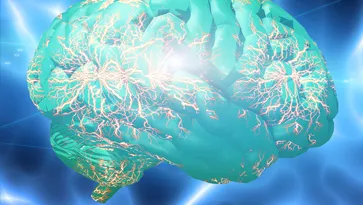Current Research
Cognition Engineering delves into the realm of intelligence and intelligent systems, firmly rooted in the computational theory of mind, which guides nuanced behavior. Given the intricate nature of various mental activities, we anticipate a shared set of fundamental processes underlying performance.
Driven by a commitment to understanding cognition, Cognition Engineering endeavors to develop software capable of learning from experience, delving into the complexities of thinking, learning, and reasoning. In the pursuit of survival and reproductive success, organisms must adeptly translate patterns into predictions, a critical adaptation in navigating their environments.
This discipline not only models elements of human consciousness but also aspires to create artificial intelligences capable of rational thought and action, mirroring human behavior.

Virtual Proprioception
Virtual proprioception represents a novel means of developing cortical reorganization of alternative strategies for hemiparetic gait. Fundamentals of the device are motor control plasticity, aftereffect, and visual-based biofeedback. Wireless three-dimensional... Learn More ›
Virtual proprioception represents a novel means of developing cortical reorganization of alternative strategies for hemiparetic gait. Fundamentals of the device are motor control plasticity, aftereffect, and visual-based biofeedback. Wireless three-dimensional (3D) microelectromechanical systems (MEMS) accelerometers can be placed on various limbs and other areas of the body. The acceleration data from the wireless accelerometers are fed back to the user in real time by visual output from smartphones or portable laptops. Given the virtual proprioception feedback, the user can then adjust the original movement while performing an improved alternative strategy. The inherent roles of proprioception with locomotion and issues with traumatic brain injury are considered. The technology advance of accelerometers and motion analysis is detailed. Virtual proprioception has been tested and evaluated, while demonstrating the capacity to improve performance during real time.
Close ›
Deep Brain Stimulation
Deep Brain Stimulation (DBS) is a neurosurgical procedure introduced in 1987, involving the implantation of a medical device called a neurostimulator (sometimes referred to as a 'brain pacemaker'), which sends electrical impulses, through implanted... Learn More ›
Deep Brain Stimulation (DBS) is a neurosurgical procedure introduced in 1987, involving the implantation of a medical device called a neurostimulator (sometimes referred to as a ‘brain pacemaker’), which sends electrical impulses, through implanted electrodes, to specific targets in the brain (brain nuclei) for the treatment of movement and neuropsychiatric disorders. DBS in select brain regions has provided therapeutic benefits for otherwise-treatment-resistant disorders such as Parkinson’s disease, essential tremor, dystonia, chronic pain, major depression and obsessive–compulsive disorder (OCD). Despite the long history of DBS, its underlying principles and mechanisms are still not clear. DBS directly changes brain activity in a controlled manner, its effects are reversible (unlike those of lesioning techniques), and it is one of only a few neurosurgical methods that allow blinded studies.
Close ›Neuromodulation
Neuromodulation is the physiological process by which a given neuron uses one or more chemicals to regulate diverse populations of neurons. This is in contrast to classical synaptic transmission, in which one presynaptic neuron directly influences a single... Learn More ›
Neuromodulation is the physiological process by which a given neuron uses one or more chemicals to regulate diverse populations of neurons. This is in contrast to classical synaptic transmission, in which one presynaptic neuron directly influences a single postsynaptic partner. Neuromodulators secreted by a small group of neurons diffuse through large areas of the nervous system, affecting multiple neurons. Major neuromodulators in the central nervous system include dopamine, serotonin, acetylcholine, histamine, and norepinephrine
Close ›



